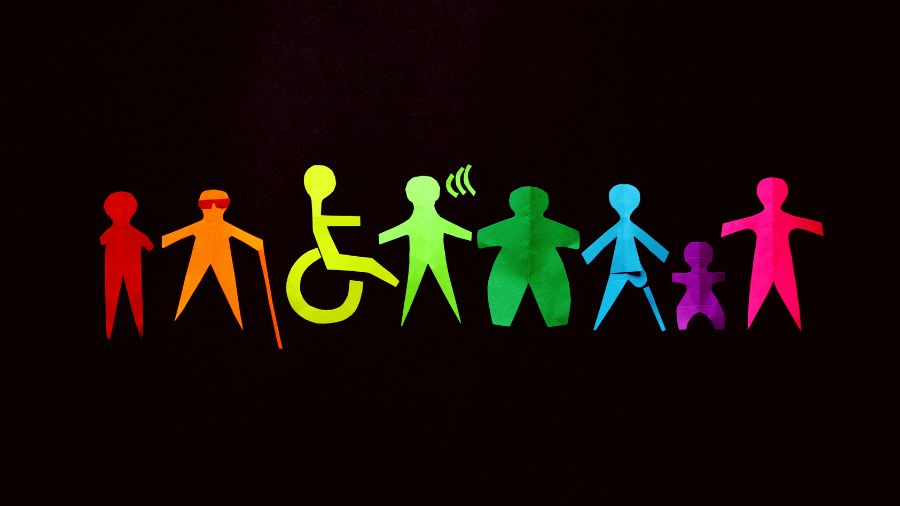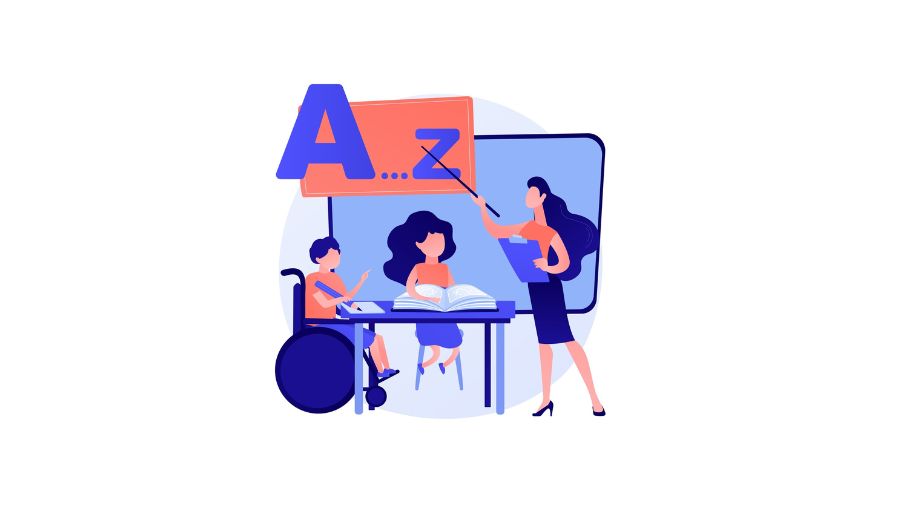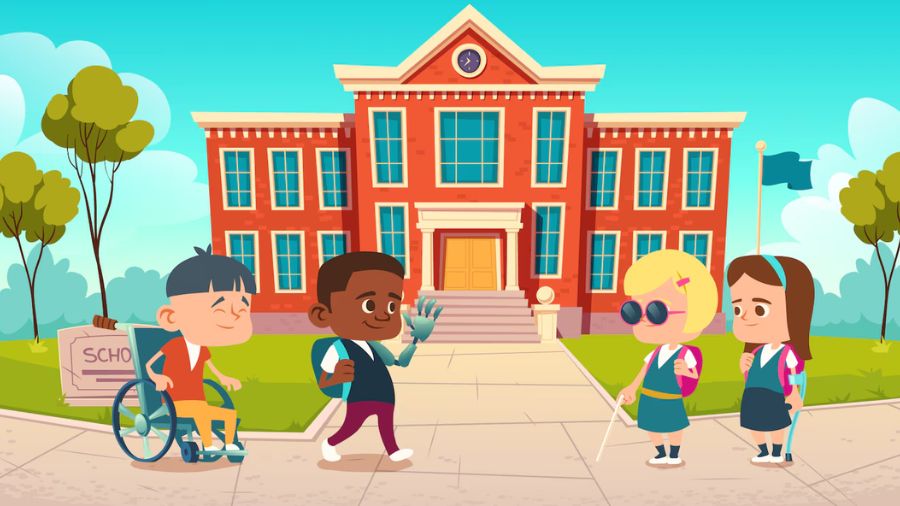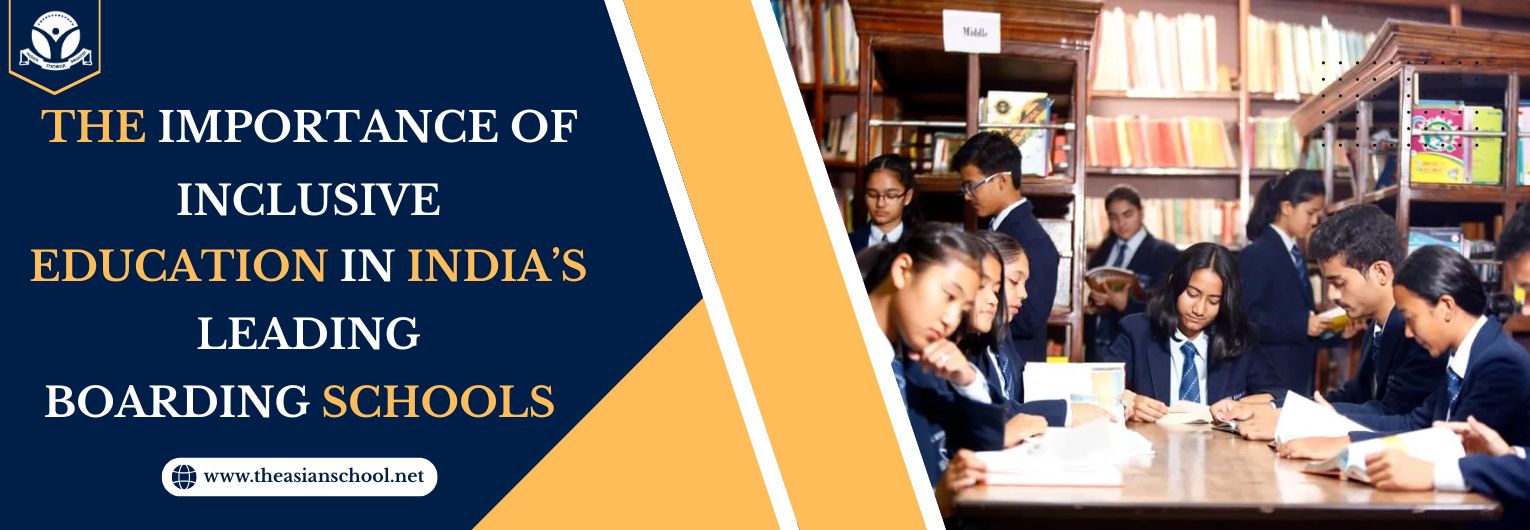India is home to a diverse range of cultures, languages, and, most importantly, abilities. This reality must be reflected in our educational systems. Inclusive education plays a vital role in ensuring that every child, regardless of background or ability, receives equal learning opportunities. High-quality education has been the main focus for many years, and establishments like India’s boarding schools—especially the esteemed ones often located in major cities like Dehradun—are renowned for setting the bar high by embracing inclusive learning approaches.
However, impressive infrastructure or high test scores aren’t the only indicators of true excellence. It concerns how well a school prepares each student for the diverse, demanding, and empathetic real world. This is where the inclusive education in India concept comes into play, turning a fantastic school into a genuinely wonderful community.
What is Inclusive Education in India?

Inclusive education means educating all kids, no matter their physical, social, intellectual, emotional, linguistic, or other difficulties, together, in the same regular classroom and school environment.
It is a transformation in mindset: rather than expecting the kid to fit into the system, the educational system adjusts to fulfill the requirements of the kid.
This includes students with –
1. Physical Disabilities – Mobility problems, visual or hearing impairments.
2. Learning Differences – Dyslexia, Dysgraphia, ADHD.
3. Development Delays – Autism Spectrum Disorder (ASD).
4. Socio-economic Disadvantages – Students from marginalized backgrounds.
The objective is to build a really inclusive learning environment where every student feels a profound sense of belonging and has the resources to gain their complete potential.
Why Inclusive Education in Boarding Schools Matters More

While the importance of inclusive education applies to all schools, it takes on an additional layer of importance in boarding schools. Boarding schools aren’t only academic hubs they are home for the students. The isolation from family support creates a welcoming and adaptive school atmosphere, which is non-negotiable.
1. Real-World Preparation
After graduation, students will find themselves in a variety of environments, including multinational corporations and college campuses. By practicing inclusive education in boarding schools, the institutions reflect this reality.
- For All Students – Studying with classmates who have varying skill levels teaches priceless lessons in cooperation, empathy, patience, and conflict resolution. It promotes respect for one another and dispels stereotypes.
- For Students with Special Needs – It gives special needs students the vital social practice and life skills development they need to successfully and independently navigate a non-segregated society.
2. Enhanced Social-Emotional Well-Being
The residential environment of boarding schools in India makes emotional support crucial.
- A Sense of Belonging – Inclusion assures that a student, specifically one with a learning difference, isn’t isolated. They are part of the prime student body, attending classes, dining, and playing alongside their peers. This vibe of acceptance remarkably boosts their self-esteem and mental health.
- Decreased Stigma – When the best school embraces inclusive methods, it signals to the whole community that diversity in ability is valuable and normal. This assists in eliminating the historical social stigma attached to having a learning distinction or disability.
3. Holistic Growth for All
Inclusive education pushes schools and teachers to be more inventive, leveraging every student.
- Differentiated Instruction – When teachers are trained to adjust lessons for a student with Dyslexia, these inventive, multi-sensory teaching ways actually assist all students who have different learning styles.
- Universal Design for Learning – This structure, crucial to an inclusive learning environment, designs lessons and evaluations to be adaptable from the beginning, making learning accessible to everybody, not only a select average group.
The Path to True Inclusion – Steps Leading Schools Are Taking

Moving from policy on paper to actual practice on the ground is frequently a challenge for prestigious institutions, such as the Best Boarding Schools in Dehradun. This calls for precise, quantifiable actions –
1. Infrastructure and Accessibility
Having a special education department is insufficient. The campus as a whole needs to be physically accessible.
- Elevators and Ramps – Providing students with physical disabilities with mobility.
- Sensory-Friendly Spaces – Creating calm, specific spaces where students who struggle with sensory processing, which is common in ASD or ADHD, can withdraw and regain control.
- Accessible Dormitories and Classrooms – Classrooms and dormitories that are accessible: Setups and furnishings that meet everyone’s needs.
2. Trained Staff and Resources
This is the single most important element contributing to the success of Inclusive Education in India.
- Special educators – Employing counselors and coordinators with training in special needs to create Individualized Education Plans (IEPs) for students who require them.
- Teacher Training – Teacher training is the process of giving all regular teachers ongoing professional development in areas like collaborative teaching, differentiated instruction, and positive behavior support. It is not only the duty of special education teachers to promote inclusion; it is a shared responsibility.
3. Curricular Flexibility and Support
The enemy of inclusion is a rigid, one-size-fits-all curriculum.
- Adapted Assessments – According to the rules established by the CBSE and other Boarding Schools in India‘s educational boards, adaptive assessments involve providing appropriate accommodations during tests, such as additional time, a scribe, or different methods of evaluation.
- Assistive Technology – Assistive technology is the use of devices such as digital readers, text-to-speech software, and specialized writing tools to help students who struggle with learning.
Building a Better Future
India’s transition to inclusive education is not a charity rather, it is a wise investment in our shared future and a cornerstone of social justice. Leading educational institutions, especially India’s well-known boarding schools, send a strong message when they support this cause: Every child is important and should have a place at the table.
In addition to preparing students for a prosperous future, educational institutions like The Asian School, Dehradun, are creating compassionate citizens who will contribute to the creation of a more just and compassionate society by cultivating an inclusive learning environment. Parents looking for a boarding school in Dehradun or anywhere else in India should seek out a school that recognizes that a society’s treatment of its most vulnerable members is a good indicator of that society, and that a school’s inclusion of all students is a good indicator of that school.
Also Read: Top Tips for Parents: Finding the Right School in India (2026 Edition)














